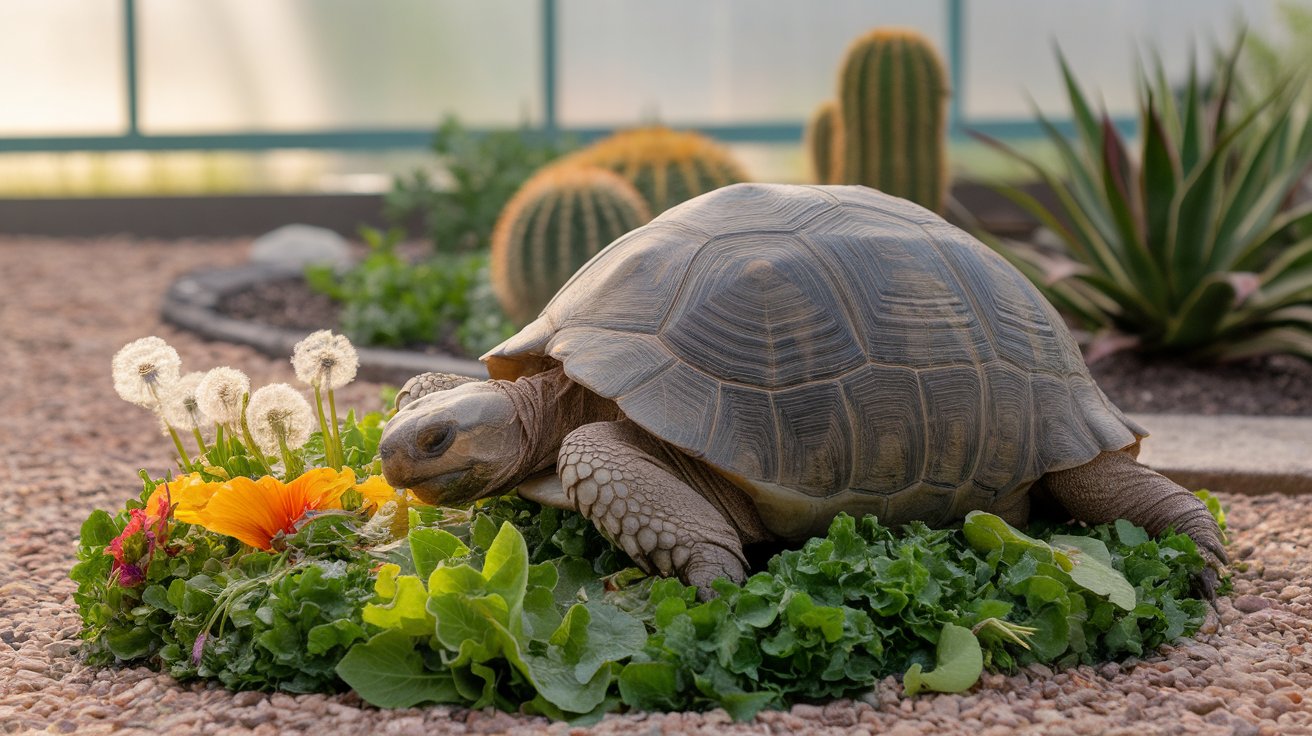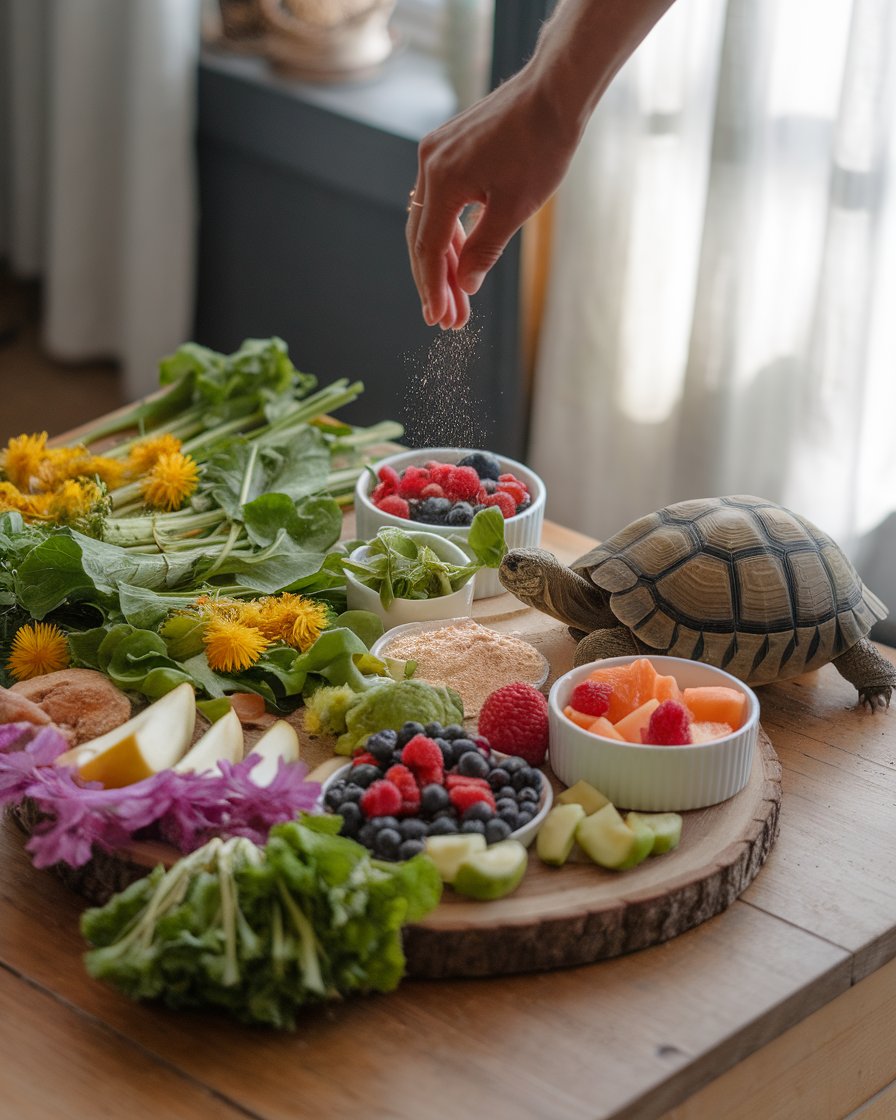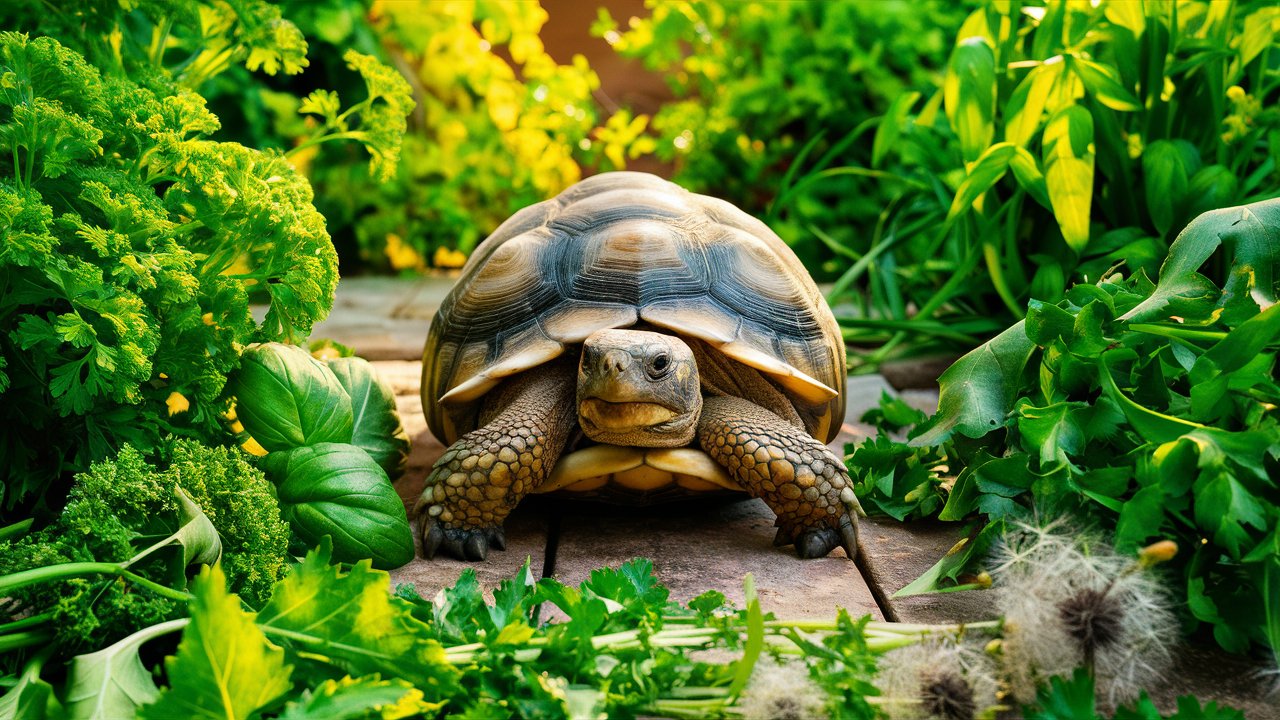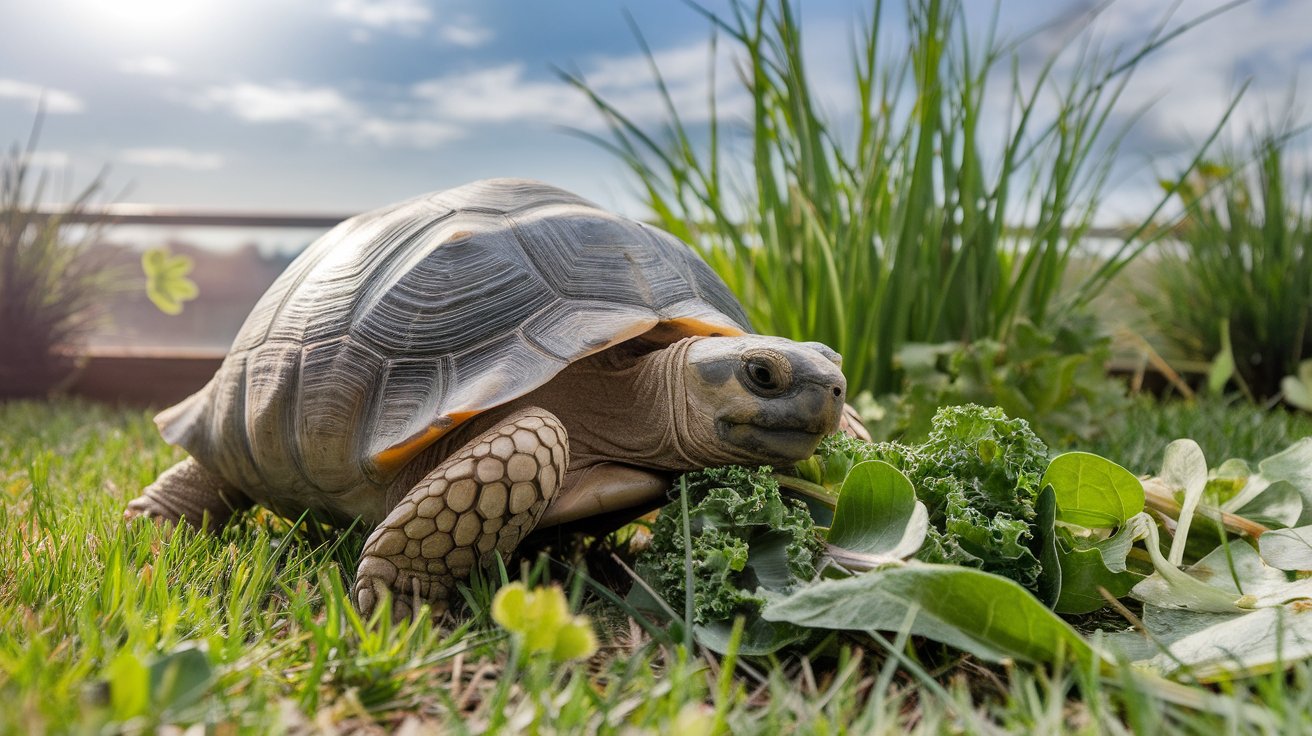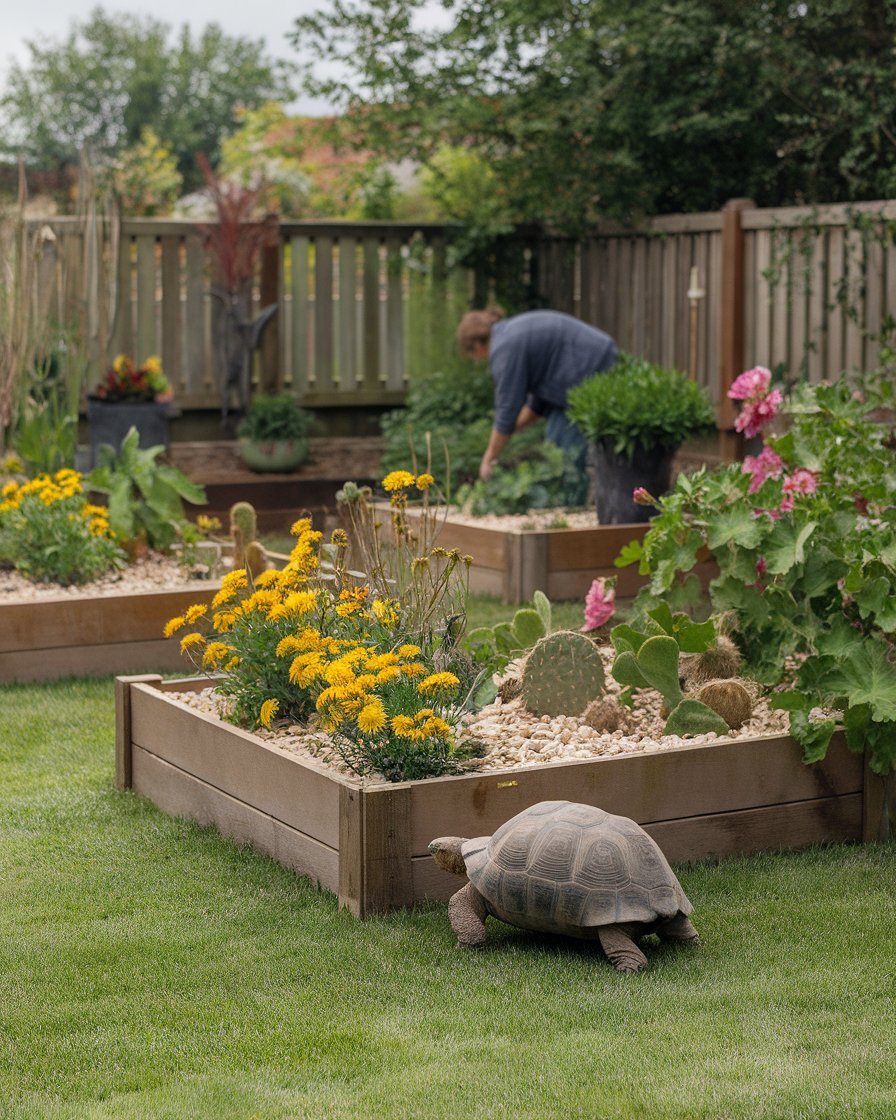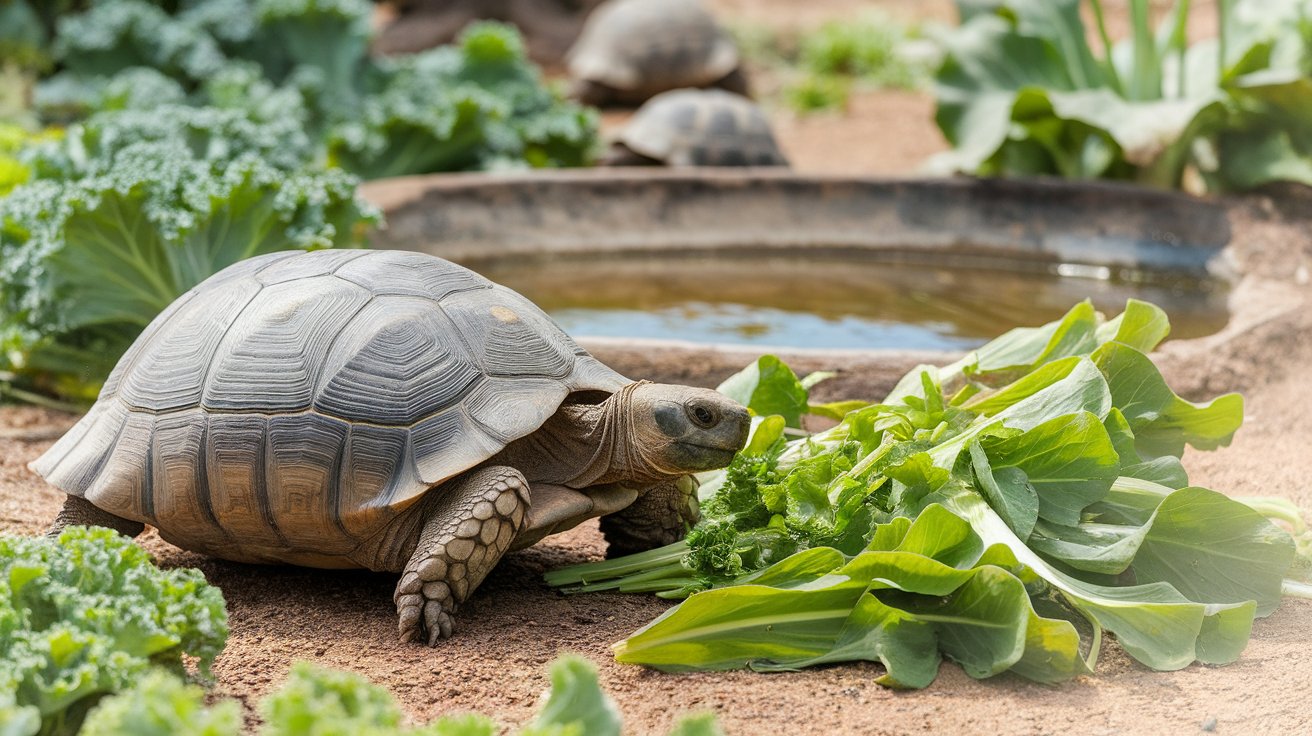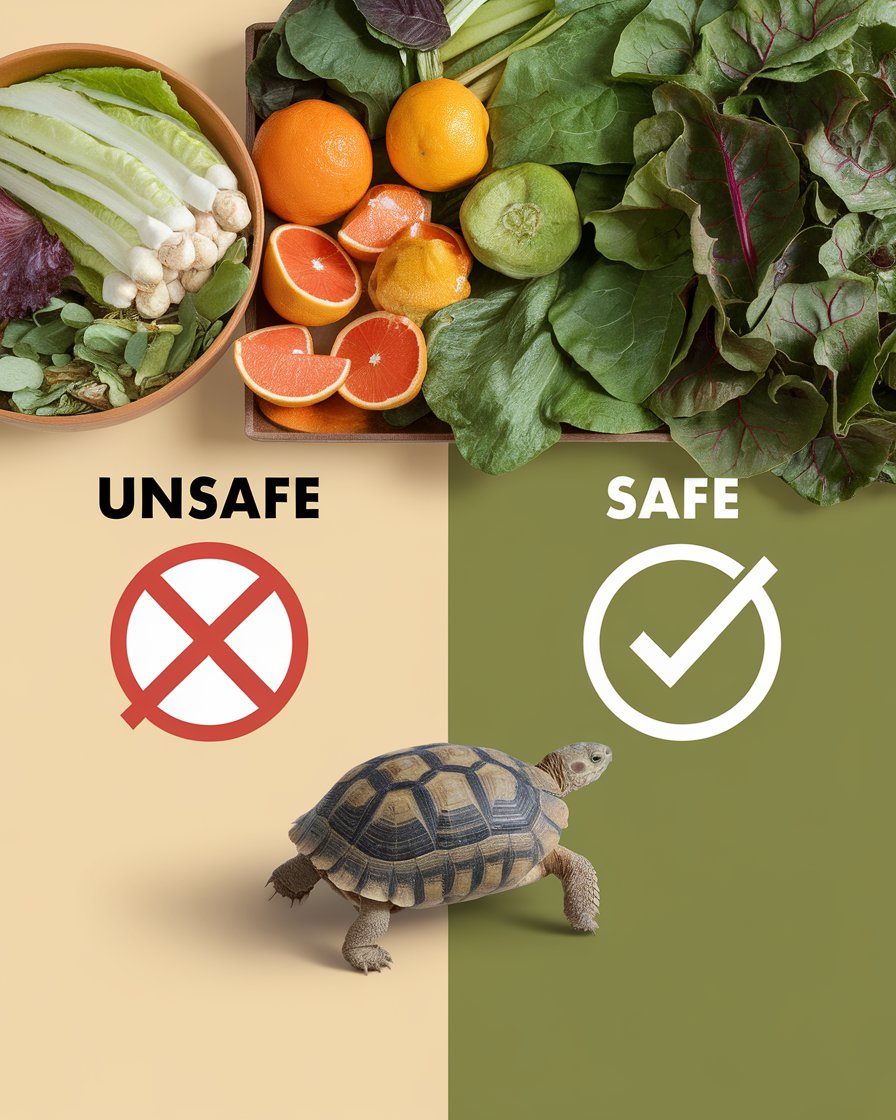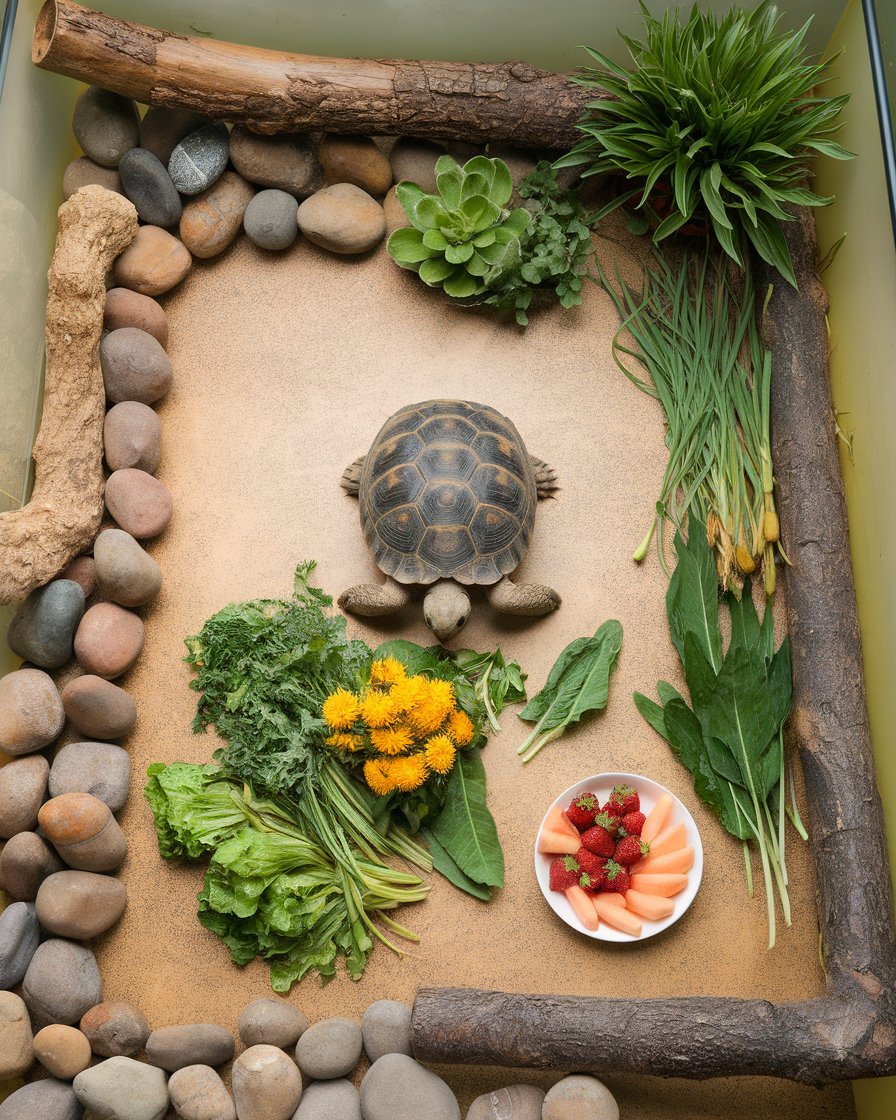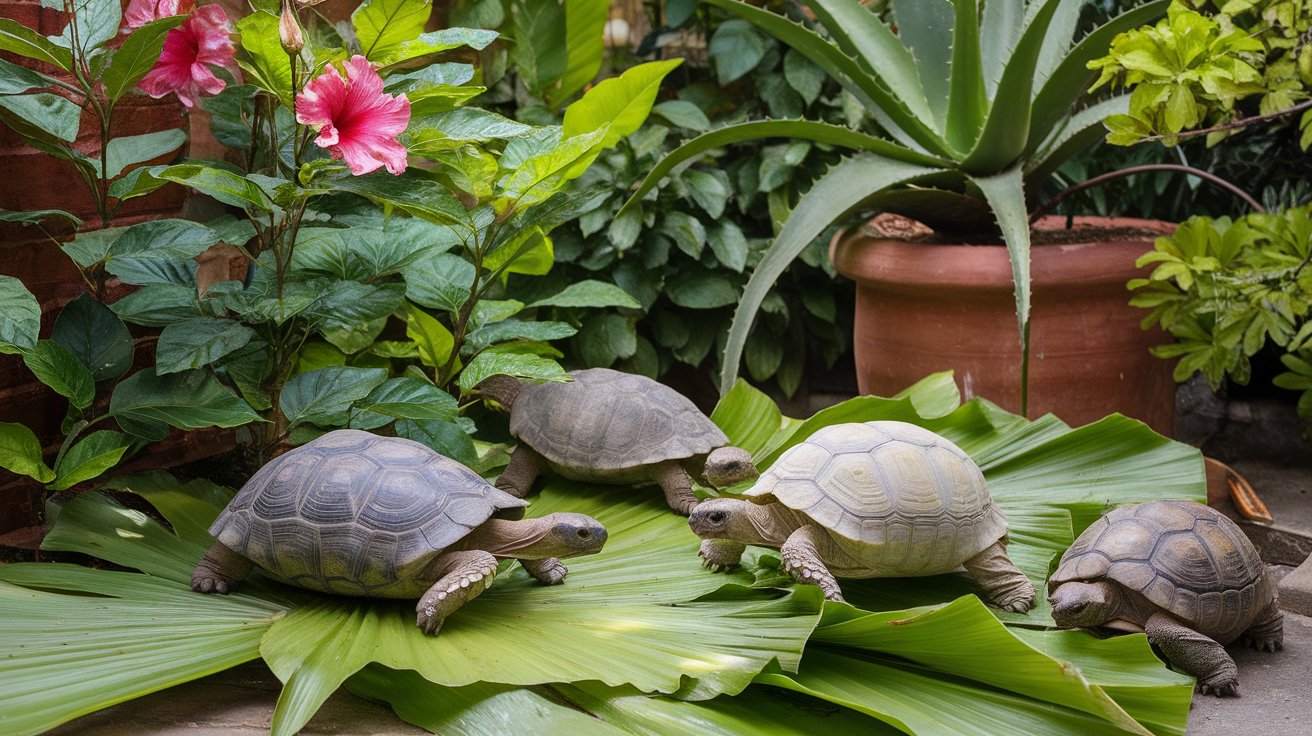Introduction
Tortoises are unique reptiles that require a carefully balanced diet to thrive, especially in captivity. A varied diet consisting of different food sources, like leafy greens, fruits, and vegetables, ensures that they receive all the essential nutrients. For pet tortoises, offering foods like squash, plantain, and cabbage, along with calcium-rich options like sweet potatoes, helps support their overall health. Desert tortoises and other species are opportunistic feeders in the wild, often nibbling on a variety of plants to meet their dietary needs. It’s important to replicate this in captivity by including a variety of foods in their enclosure.
Tortoises can eat a wide range of food items, but it’s crucial to be mindful of their diet’s nutritional balance. Many tortoises benefit from supplements like calcium powder to prevent issues like metabolic bone disease. Additionally, offering small amounts of pelleted food and avoiding excess protein helps maintain their health. Ensuring a diet rich in fiber and low in high-sugar content can support long-term wellness for your pet tortoise.
Key Takeaways
- A balanced diet of leafy greens, fruits, and vegetables is essential for a tortoise’s longevity and overall health.
- Calcium and vitamin D3 supplements are vital to support strong bones and prevent metabolic bone disease in tortoises.
- Growing your own tortoise food, like hibiscus flowers and prickly pear cactus, ensures a pesticide-free, nutritious diet.
- Avoid toxic foods like iceberg lettuce and high-protein items like dog or cat food to prevent serious health issues.
- Offering a variety of plant-based foods helps prevent nutrient deficiencies and promotes long-term well-being.
- A varied diet rich in fiber and low in sugar content supports the digestive system and longevity of tortoises.
A Balanced Approach to Tortoise Food: What Should Your Tortoise Eat?
When considering what your tortoise should eat, it’s essential to focus on a balanced diet that supports longevity and overall health. A tortoise’s diet should consist of varied food items, from leafy greens like dandelion and collard greens to small amounts of fruit. Mediterranean tortoises, for instance, thrive on natural food sources found in the wild, but it’s important to adapt their diet when in captivity. Calcium and vitamin D3 supplements can help support strong bones and prevent health issues like metabolic bone disease. The key is providing your tortoise with food that mimics their natural diet as closely as possible while ensuring they get the essential nutrients they need.
Essential Components of a Nutritionally Balanced Diet for Tortoises
1. Leafy Greens as the Foundation Leafy greens such as dandelions, collard greens, and mustard greens are vital in a tortoise’s diet. These plants provide the essential nutrients that support the overall health of your tortoise. They are packed with calcium, which is crucial for maintaining strong bones and a healthy shell. By offering a variety of these greens, you can ensure that your tortoise receives the vitamins and minerals necessary for longevity.
2. Incorporating Fruits in Moderation Fruits like berries and melons can be part of a tortoise’s diet, but they should be offered in small quantities. Tortoises can also enjoy occasional fruits as a source of hydration and additional vitamins. However, because fruits are high in sugar, it’s important to limit the amount to avoid digestive issues and ensure the tortoise’s diet remains primarily plant-based.
3. Calcium-Rich Foods to Prevent Health Issues Calcium plays a critical role in preventing metabolic bone disease, a common issue in captive tortoises. Along with offering calcium-rich leafy greens, it’s essential to supplement with calcium powder, especially if your tortoise doesn’t receive enough natural sunlight or UVB exposure. This ensures proper calcium absorption and supports the development of a strong shell and bones.
4. Adding Safe Flowers and Weeds Weeds and flowers such as hibiscus and dandelion flowers not only add variety to a tortoise’s diet but also offer additional nutritional value. These plants are safe for tortoises and provide fiber, which is important for their digestive health. Including these in their diet mimics what wild tortoises would naturally graze on, promoting both physical and mental well-being.
5. Supplementing with Pelleted Foods Carefully While leafy greens and natural plants should make up most of your tortoise’s diet, pelleted foods can serve as a supplement. Choose pellets specifically designed for tortoises, ensuring they are free of excessive protein and contain the proper nutritional balance. Always use these in moderation to avoid over-reliance on processed food, keeping your tortoise’s diet as close to its natural state as possible.
6. Avoiding High-Sugar and High-Protein Foods Certain foods, such as dog food or high-sugar fruits, should be avoided entirely as they can lead to serious health issues. Tortoises require a diet high in fiber and low in protein. Excess protein can cause abnormal shell growth and kidney damage. Instead, focus on providing a variety of plants and weeds that are low in sugar and rich in fiber to maintain your tortoise’s overall health.
The Role of Calcium in a Tortoise’s Diet
Calcium plays a vital role in ensuring your tortoise’s bones and shell remain strong and healthy. Without enough calcium, tortoises are at risk for metabolic bone disease, a serious condition that can cause deformities. To avoid this, it’s essential to include calcium-rich foods such as leafy greens like collard greens and mustard greens, and sprinkle calcium powder on their food. It’s also important to provide the right balance of calcium and vitamin D3, as this helps the tortoise absorb the calcium effectively, especially when they get exposure to natural sunlight or UVB lights.
Foods to Include for a Varied Tortoise Diet
To ensure your tortoise thrives, it’s essential to provide a variety of foods that mimic their natural diet. Offer a combination of leafy greens, such as dandelions, turnip greens, and hibiscus flowers, alongside occasional fruits like berries and melon. Be sure to also include grasses and weeds, as they are a crucial part of a tortoise’s diet in the wild. This balanced approach to feeding helps your tortoise meet all its nutritional needs, supporting both digestion and overall health. Small amounts of safe plants and flowers add nutritional value while ensuring variety in your tortoise’s diet.
Growing Your Own Tortoise Food: Why It’s Worth the Effort
Many pet owners choose to grow their own tortoise food, offering their pets a more natural and nutritious diet. By cultivating plants like dandelions, hibiscus flowers, and prickly pear cactus, you can ensure that your tortoise’s food is free from pesticides and full of the vitamins and nutrients they need. Growing your own tortoise food is particularly beneficial for Mediterranean tortoises, as it provides them with the weeds and plants they would naturally graze on in the wild. Additionally, supplementing with calcium powder ensures that they absorb the calcium required for strong bones and overall health.
Case Study: How Growing Your Own Tortoise Food Boosts Health
A Mediterranean tortoise owner saw firsthand the powerful benefits of growing their own tortoise food. By cultivating a variety of plants like dandelions, hibiscus flowers, and prickly pear cactus, the owner ensured their tortoise was eating a varied, natural diet free from pesticides. These plants mimicked what the tortoise would normally graze on in the wild.
As a result, the tortoise showed marked improvements in health, including stronger shell development and an overall boost in vitality. Adding calcium-rich plants and using calcium powder helped prevent health problems like metabolic bone disease. The owner also rotated plants between the enclosure and the greenhouse, keeping the food supply constant. This method not only lowered the need for commercial food but also improved digestion and reduced risks tied to synthetic diets.
Best Plants to Grow for Your Tortoise
If you’re planning to grow your own tortoise food, it’s important to know which plants are most beneficial for your pet. Dandelion leaves and flowers are excellent options, as they are rich in calcium and other nutrients. Hibiscus flowers are another great choice, offering a healthy treat with a good mix of vitamins. Planting prickly pear cactus is also a great way to provide a natural source of food high in fiber and essential nutrients. Growing these plants ensures you have a constant supply of fresh, pesticide-free tortoise food that mirrors their natural diet.
Tips for Growing and Harvesting Tortoise-Friendly Plants
When growing food for your tortoise, it’s essential to use organic soil and avoid pesticides or chemicals that could be toxic to your pet. Harvesting the plants at the right time is also important to ensure maximum nutritional value. For instance, pick dandelion leaves when they’re young and tender, as they’re more nutritious at this stage. Regularly rotate the plants in your garden to give the soil time to recover, which will help your garden thrive and keep your tortoise well-fed year-round. A garden full of tortoise-safe plants can be both practical and enriching for your pet.
Common Tortoise Food Mistakes: What Not to Feed Your Tortoise
While feeding your tortoise may seem straightforward, there are common mistakes many pet owners make that can harm their tortoise’s health. It’s important to never feed foods that are toxic to tortoises, such as iceberg lettuce, which has little nutritional value, or foods high in oxalic acid, like spinach, which can inhibit calcium absorption. Additionally, dog food and cat food, which are high in protein, should be avoided entirely. Excessive protein can lead to health issues like metabolic bone disease. Instead, focus on offering your tortoise a varied diet of greens, fruits, and plants that are safe and nutritionally beneficial.
Foods Toxic to Tortoises
Certain foods are not only unhealthy but can be downright toxic to tortoises. For example, iceberg lettuce offers little nutritional value and can cause digestive issues. Spinach and other foods high in oxalic acid should be avoided, as they can inhibit calcium absorption, which is vital for a tortoise’s shell and bone health. Fruits like citrus and foods high in sugar content can disrupt the tortoise’s digestive system and should also be avoided. By being cautious and knowledgeable about what your tortoise should not eat, you can prevent potential health issues that could arise from a poor diet.
Understanding the Risks of High-Protein Foods
High-protein foods like dog food and cat food are extremely harmful to tortoises. Feeding them protein-rich foods can lead to metabolic bone disease, kidney damage, and shell deformities. Tortoises in the wild consume a diet rich in fiber from plants and grasses, so their digestive systems aren’t equipped to handle excessive protein. A good rule of thumb is to avoid feeding your tortoise any animal-based proteins. Instead, focus on providing them with high-fiber, plant-based foods that support their natural digestive processes and long-term health.
“Research is important. Getting your pet tortoise from a reputable breeder will help you know exactly what to feed your little tanky friend.” — Tortoise Owner, How to Feed a Tortoise: The Guide to Tortoise Diet
The Importance of a Varied Diet for Tortoise Longevity
Feeding your tortoise a varied diet is critical to their longevity and overall well-being. Different species of tortoises may require slightly different diets, but the foundation of their meals should be diverse. A mix of dark leafy greens, flowers, and small amounts of fruit ensures that your tortoise gets the vitamins and nutrients it needs. For example, Mediterranean tortoises and sulcata tortoises both benefit from a diet rich in natural plant materials, but sulcatas require more fiber from grasses. Offering a range of tortoise food items helps prevent deficiencies and health issues, promoting a long and healthy life.
The Benefits of Diverse Plant-Based Nutrition
Offering your tortoise a wide range of plant-based foods not only keeps them healthy but also ensures they receive a diverse array of nutrients. Leafy greens like turnip greens, collard greens, and mustard greens provide essential vitamins, while flowers such as hibiscus and dandelion are excellent for variety and added nutrition. The occasional treat of fruits like strawberries or melons can add a bit of sweetness, but should always be given in moderation. A diet that mimics what wild tortoises eat supports their digestive system and overall health, helping them live longer, healthier lives.
How a Varied Diet Prevents Health Issues in Tortoises
A varied diet helps prevent health problems such as metabolic bone disease, obesity, and digestive issues in tortoises. Offering a wide range of plants, from high-fiber grasses to leafy greens and flowers, helps ensure your tortoise receives all the nutrients they need. By feeding them a variety of foods, you also reduce the risk of nutrient deficiencies, which can lead to long-term health problems. The key is balance—provide plenty of fiber, limit sugary fruits, and supplement with calcium and vitamin D3 as needed to promote longevity and a high quality of life for your pet tortoise.
Conclusion
A well-balanced diet is essential for pet tortoises to thrive, especially in captivity. Tortoises can also benefit from a varied diet that mimics their natural food sources, including leafy greens, fruits, and safe plants like dandelions and hibiscus flowers. Feeding tortoises in moderation with calcium-rich foods is key to avoiding common health issues like metabolic bone disease. Additionally, including phosphorus and calcium powder supplements ensures that they absorb the nutrients necessary for strong bones and shells.
Pet tortoises generally need a diverse range of foods, as they are known to eat a variety of plants and occasionally earthworms in the wild. Avoiding foods with high sugar content and excessive protein helps maintain their digestive health, as many tortoises are not equipped to handle such foods. By offering a range of safe, nutritious options, you can support the overall well-being of your tortoise and promote a long, healthy life.

